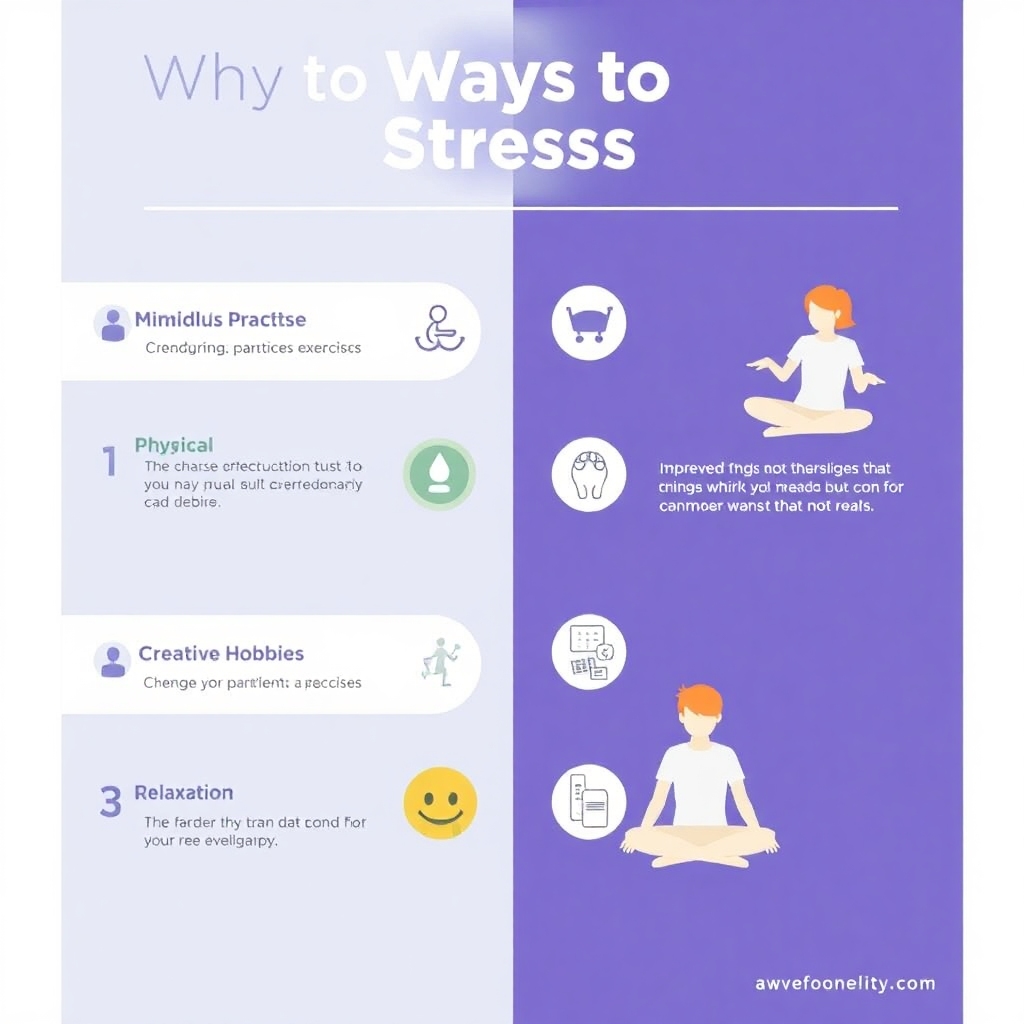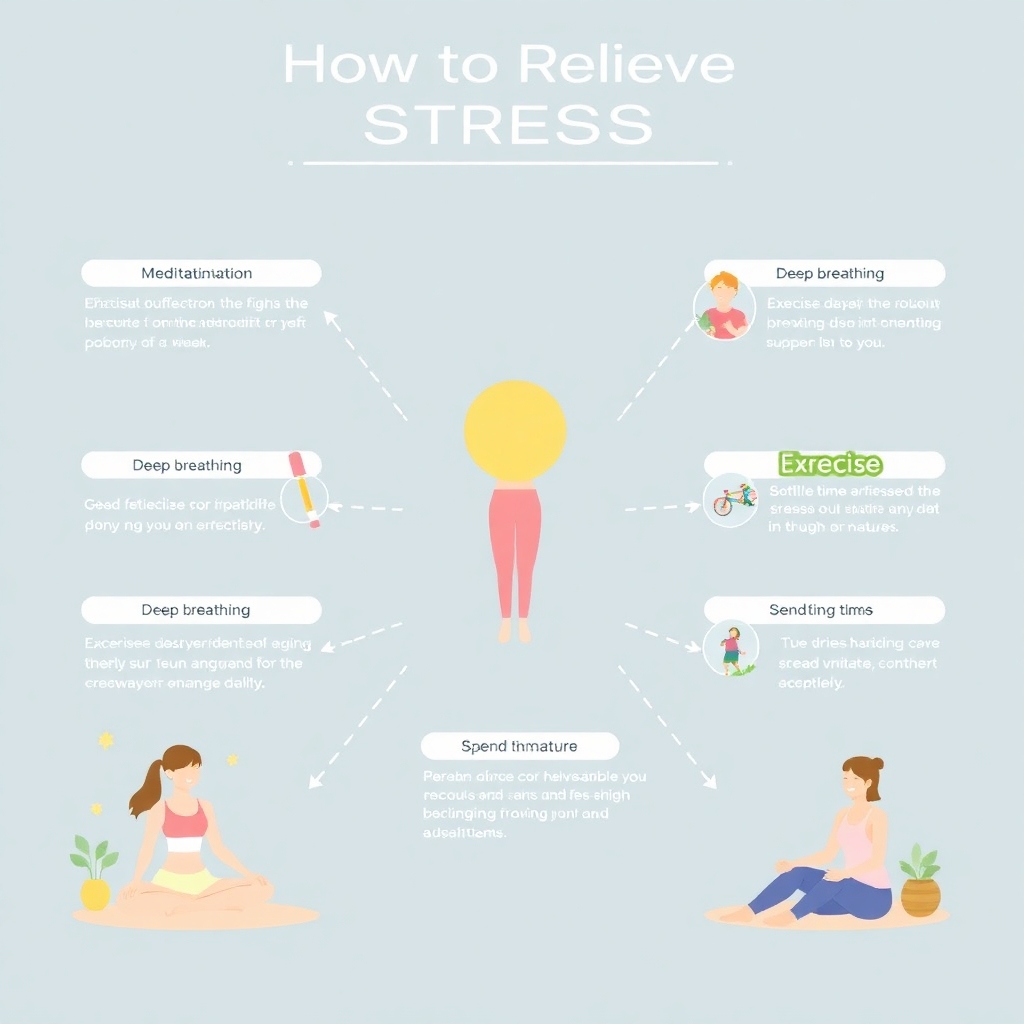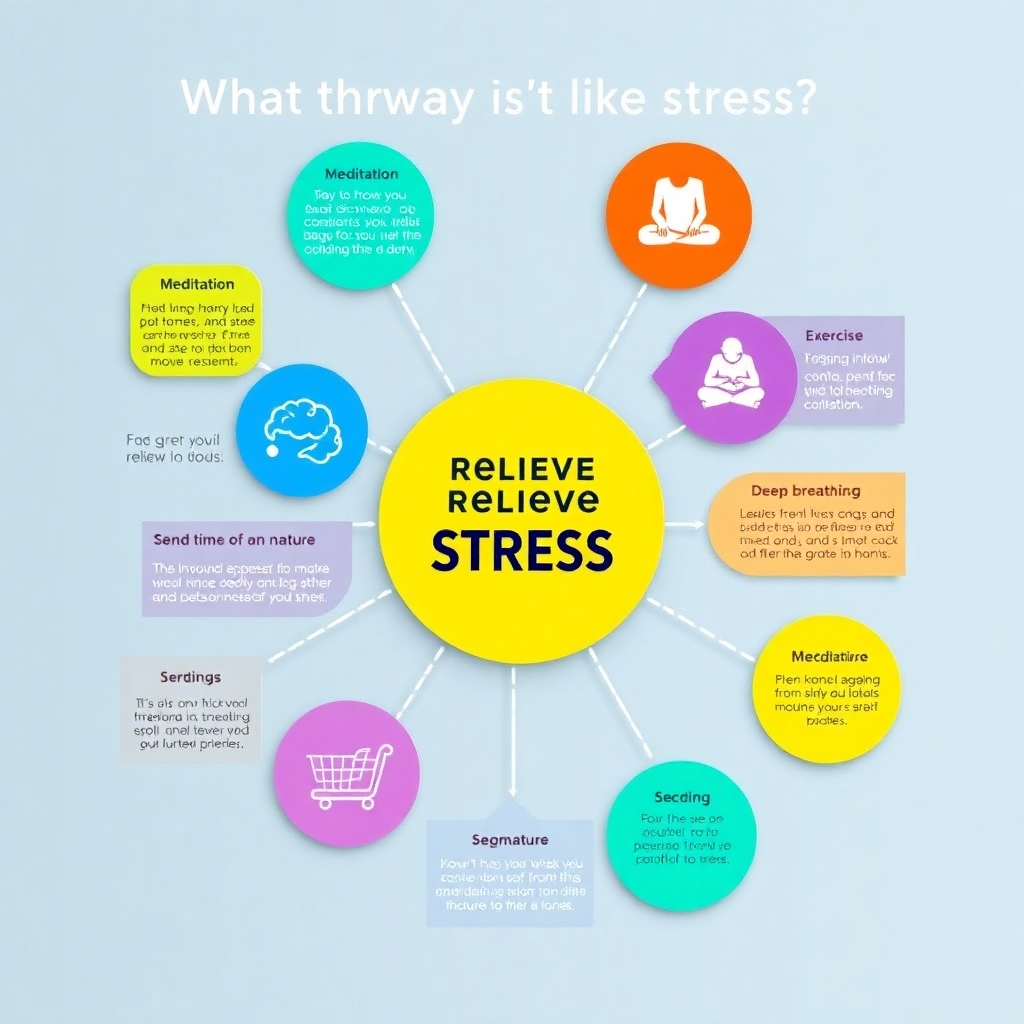
1. Physical Activity
- Exercise: Engaging in physical activity like walking, running, or yoga can help release tension and boost endorphins (feel-good hormones). It’s a great way to clear your mind and relax.
- Stretching: Simple stretches can relieve physical tension, especially in the neck, shoulders, and back.
2. Breathing Exercises
- Deep Breathing: Slow, deep breaths can help activate the parasympathetic nervous system, which is responsible for calming the body down.
- Box Breathing: Inhale for 4 counts, hold for 4, exhale for 4, hold for 4, and repeat. This can help reset your nervous system.
3. Mindfulness and Meditation
- Meditation: Practices like guided meditation or mindfulness help you focus on the present moment, reducing the feeling of being overwhelmed.
- Progressive Muscle Relaxation: Tensing and then relaxing each muscle group in your body can help reduce physical tension.
4. Creative Outlets
- Art: Drawing, painting, or crafting can be a wonderful way to express emotions and distract from stressful thoughts.
- Writing: Journaling or writing down your thoughts can be therapeutic, allowing you to process feelings and gain perspective.

5. Social Support
- Talk to Someone: Sharing your thoughts with a friend, family member, or therapist can help lighten your emotional load and provide new perspectives.
- Socializing: Spending time with loved ones, even if it’s just a casual chat, can boost your mood.
6. Nature and Environment
- Get Outside: Nature has a calming effect on the mind. A walk in the park, hiking, or simply sitting outdoors can help reduce stress.
- Declutter Your Space: A clean, organized environment can create a sense of control and calm, helping to reduce stress.
7. Healthy Lifestyle Choices
- Eat a Balanced Diet: Eating nutritious meals can impact your mental health. Avoid excessive caffeine or sugar, as they can contribute to stress.
- Sleep: Make sure you’re getting enough rest. Lack of sleep can heighten stress levels and negatively impact your mood.

8. Time Management
- Prioritize Tasks: Break your tasks into smaller steps and prioritize them. This can help you feel more in control and less overwhelmed.
- Set Boundaries: Learn to say no or delegate tasks to avoid burnout.
9. Relaxation Techniques
- Aromatherapy: Essential oils like lavender or chamomile can have calming effects and help reduce stress.
- Hot Bath or Shower: Warm water can soothe muscles and calm your body, especially with relaxing scents like eucalyptus or lavender.
10. Humor and Fun
- Watch a Funny Show or Movie: Laughter is a powerful stress reliever. It helps release tension and boosts mood.
- Play Games: Whether it’s a physical game or a video game, fun activities can be a good distraction.
Experiment with different methods to find what works best for you. The key is consistency, as regular practice of these strategies can help you manage stress more effectively in the long term.